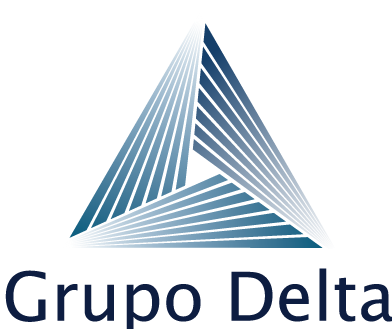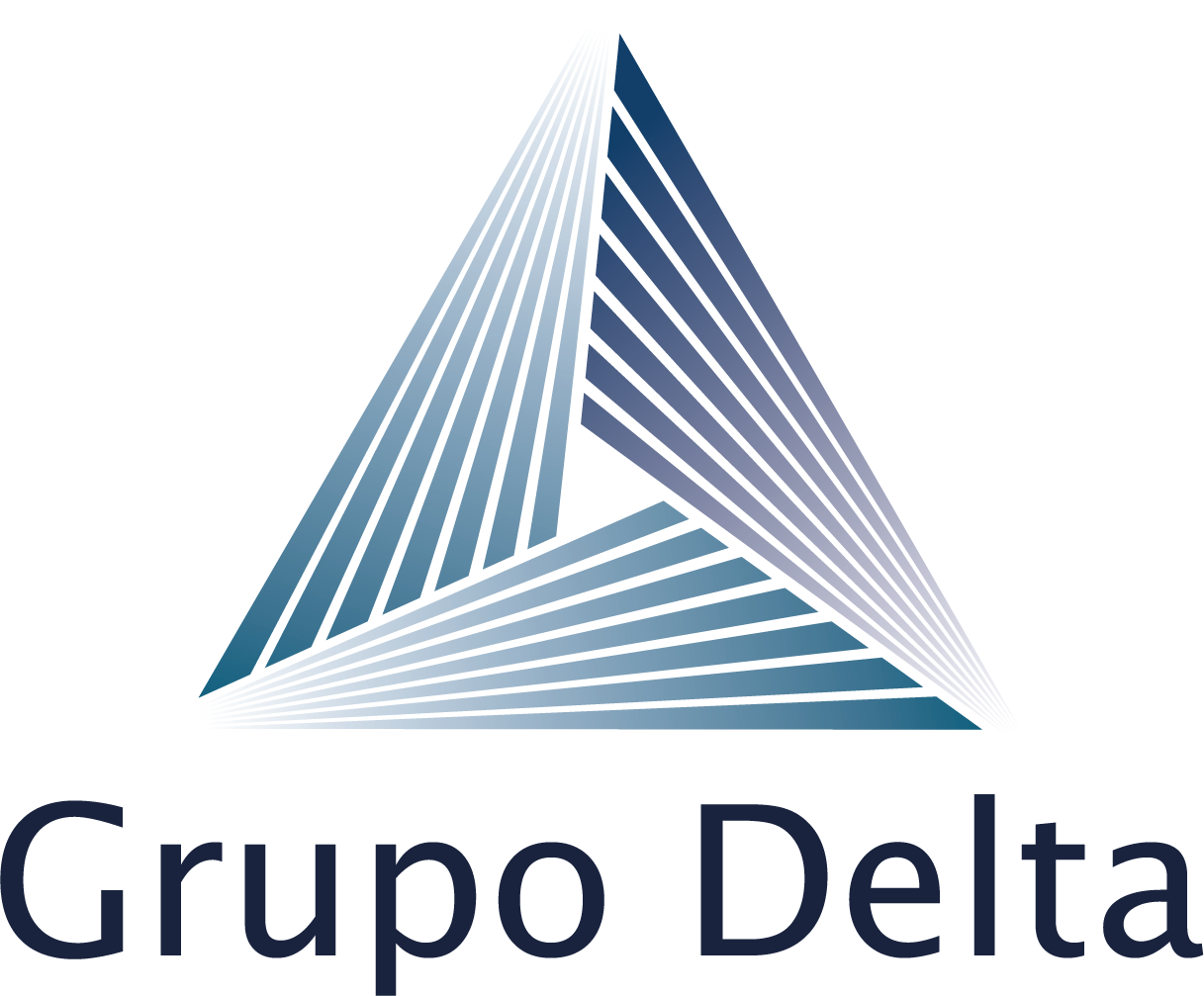
The Family Office is the service unit that coordinates Grupo Delta’s operational requirements.
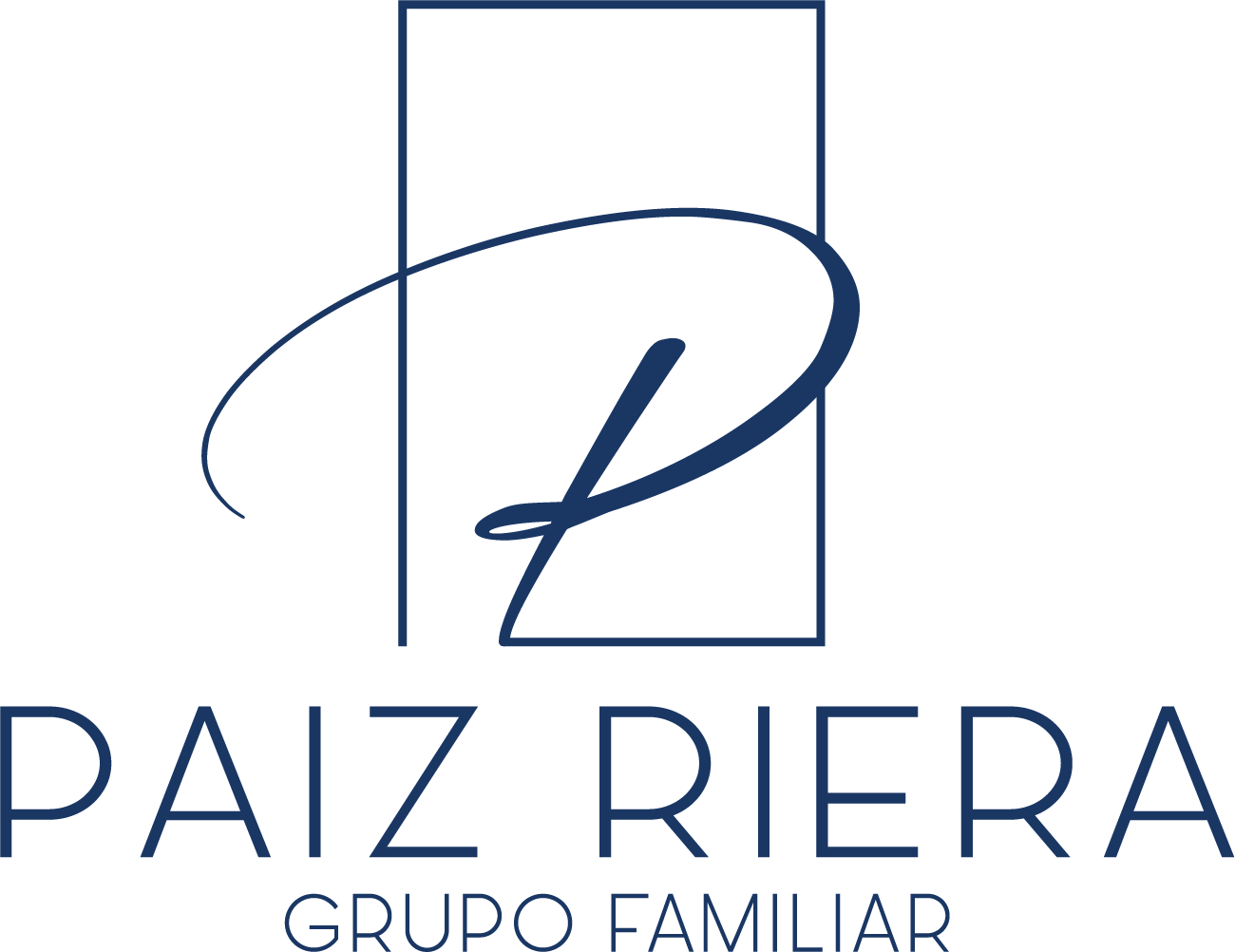
ORIGINS
-
The Paiz Riera Family, an entire legacy of entrepreneurship, had its origins in 1928.The foundations of what would be the Paiz stores in the future, were due to the entrepreneurial spirit of businessman Carlos Benjamín Paiz Ayala, father of Paiz Andrade, who founded his first store in 1928.The first store was called "La Bombita", which over time expanded its assortment of footwear materials and allowed two new businesses to emerge. "El Monito" was one of them and for Carlos Paiz Andrade it meant his first job.
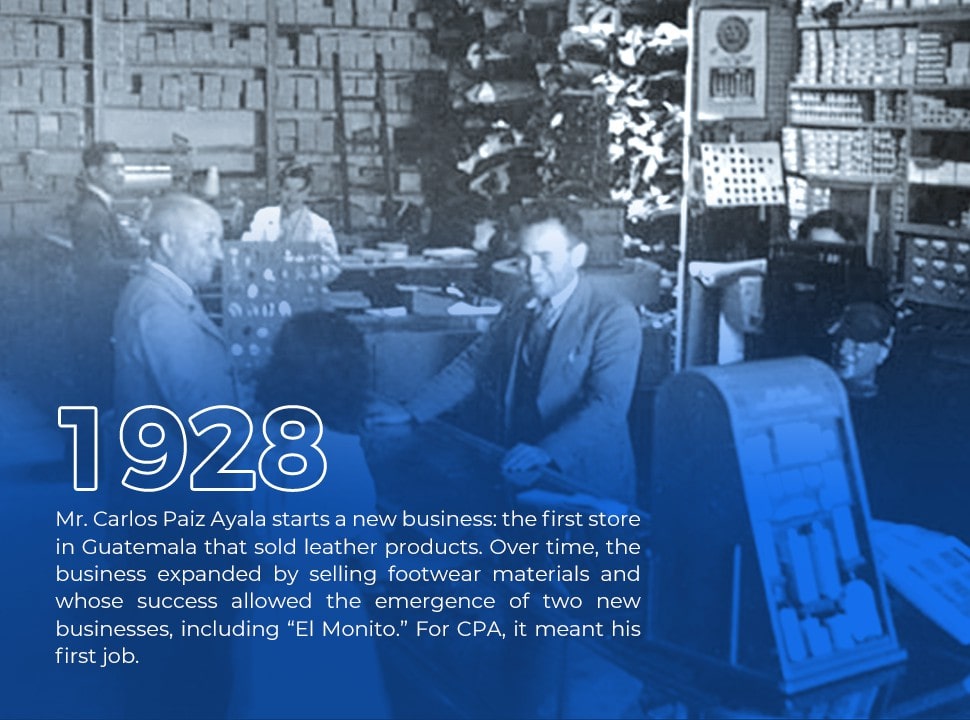
-
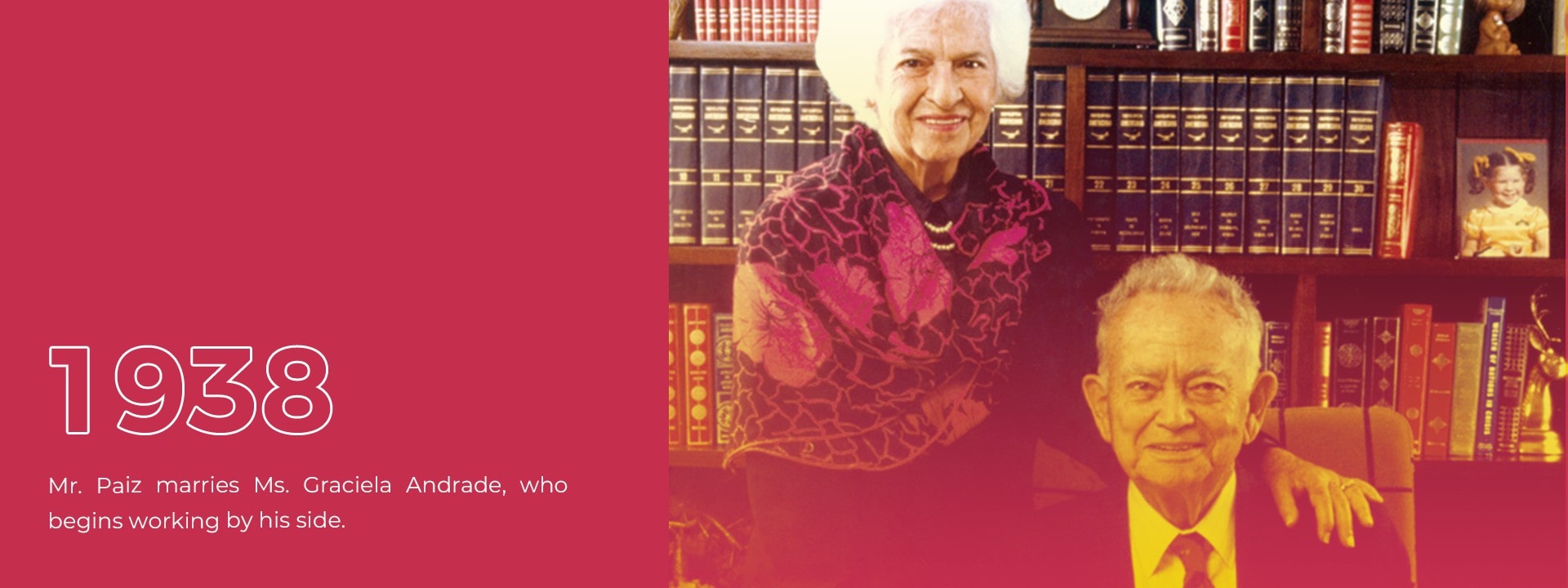
-
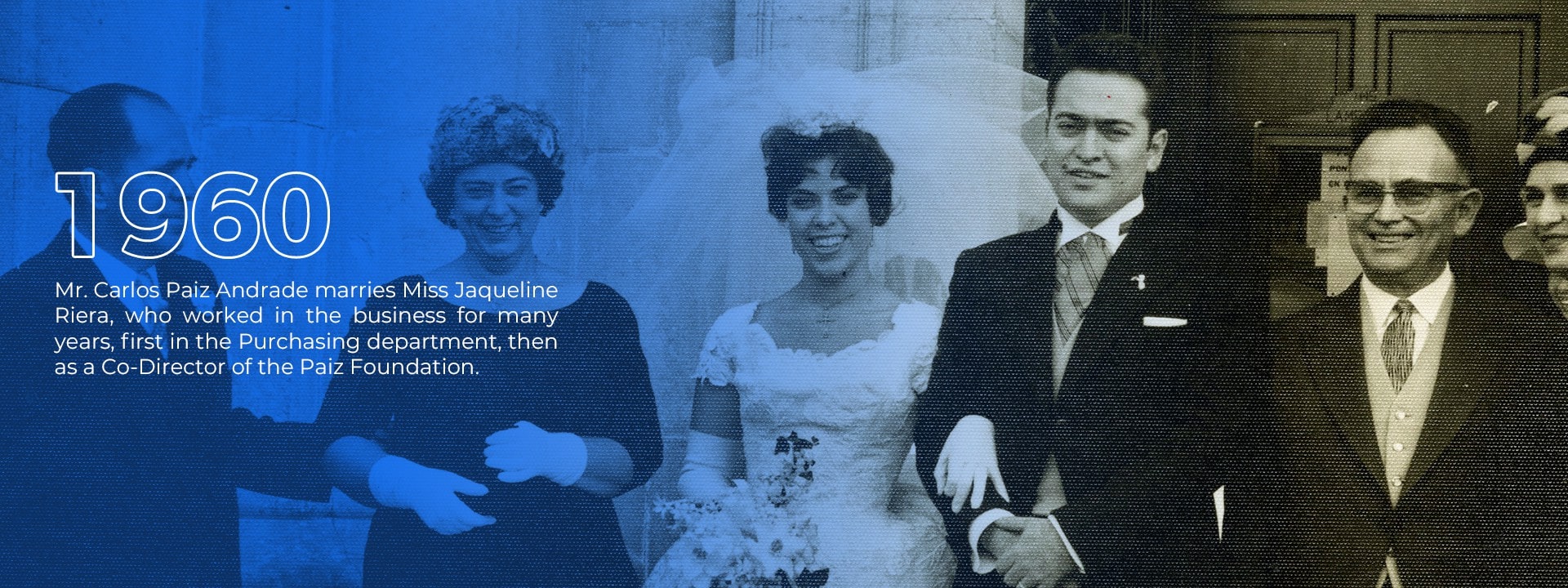
-
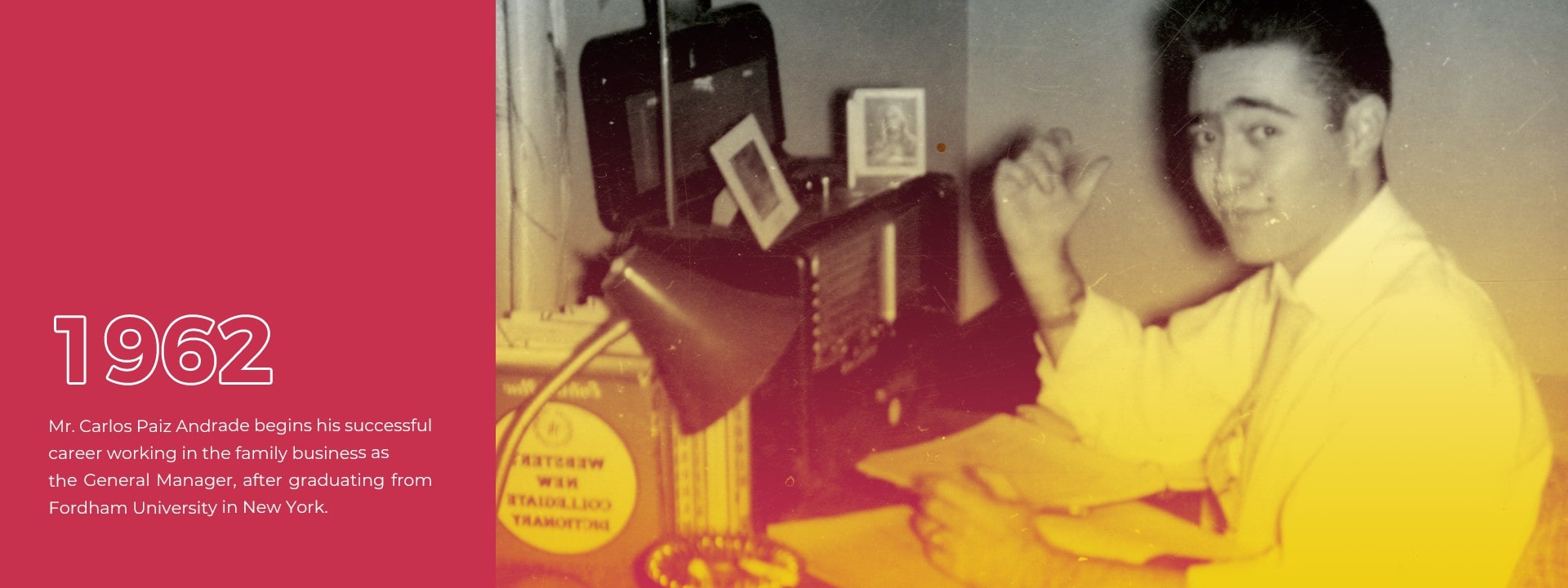
-
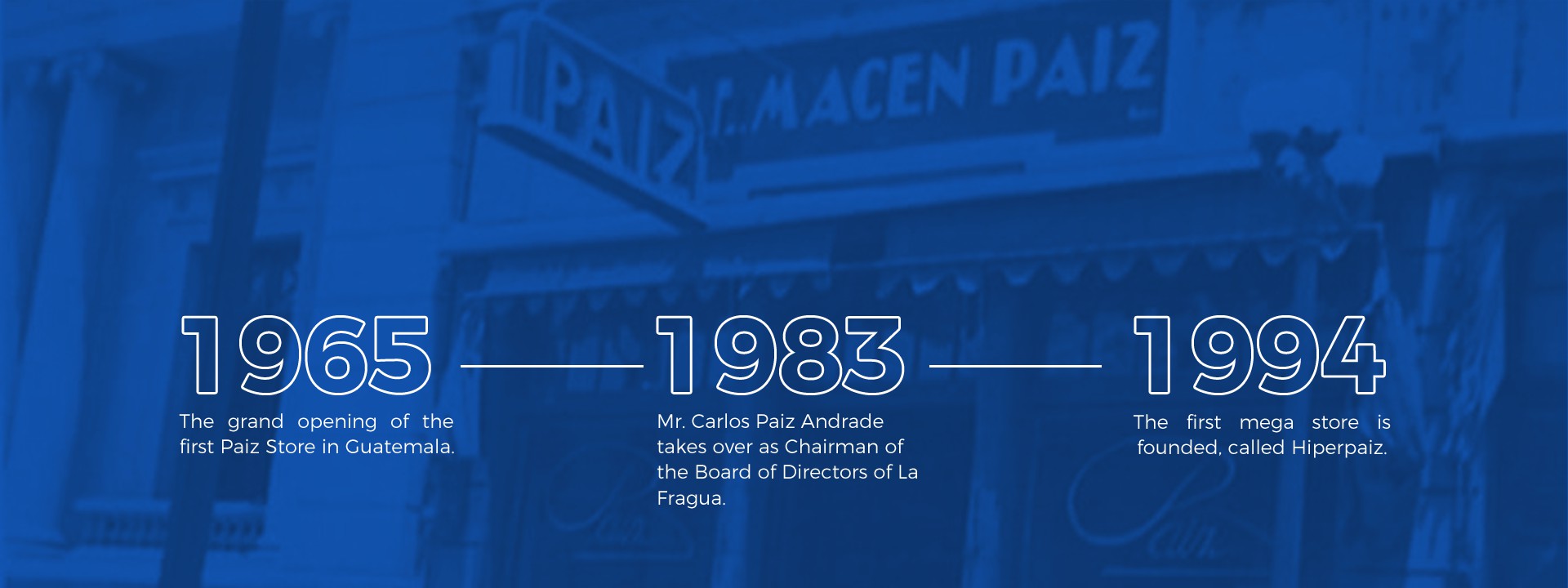
-
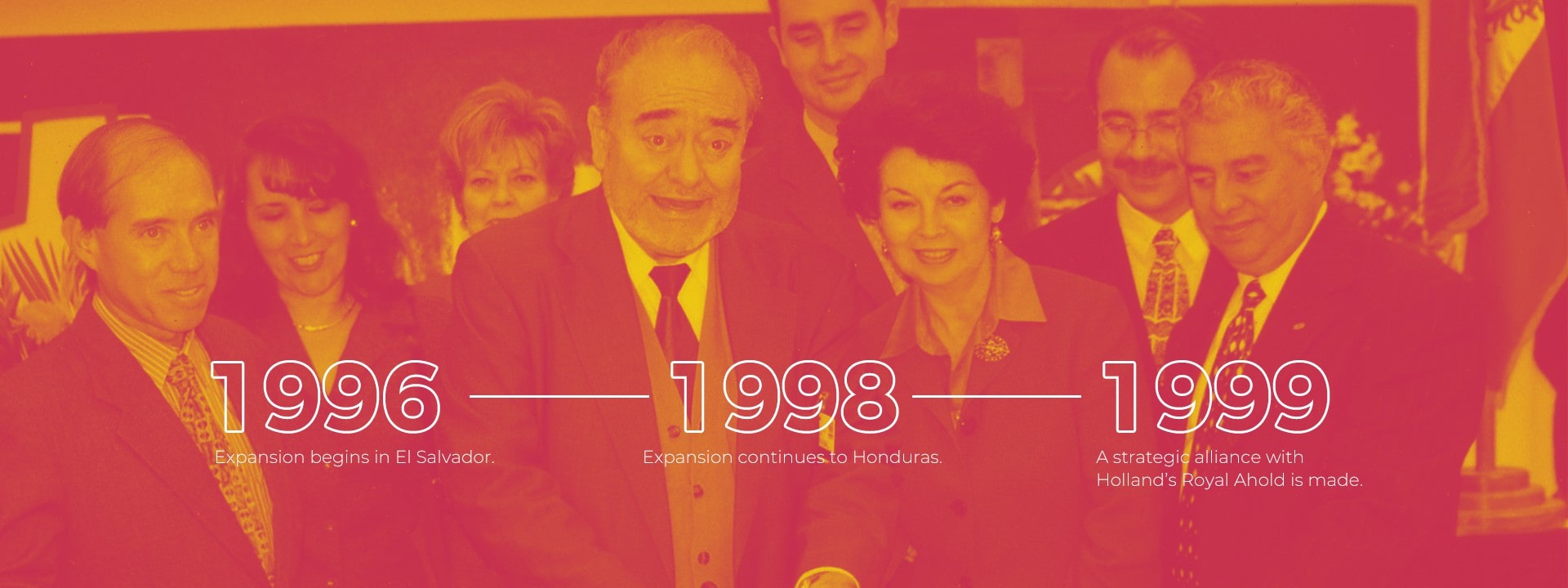
-
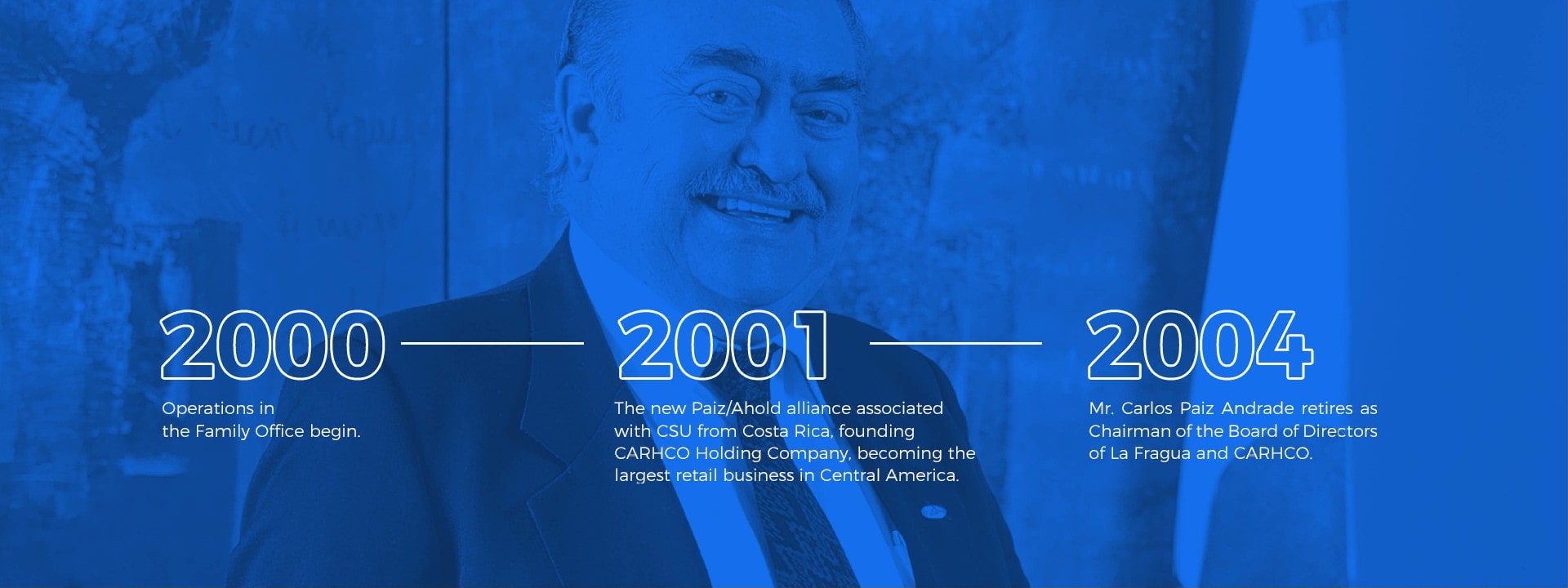
-
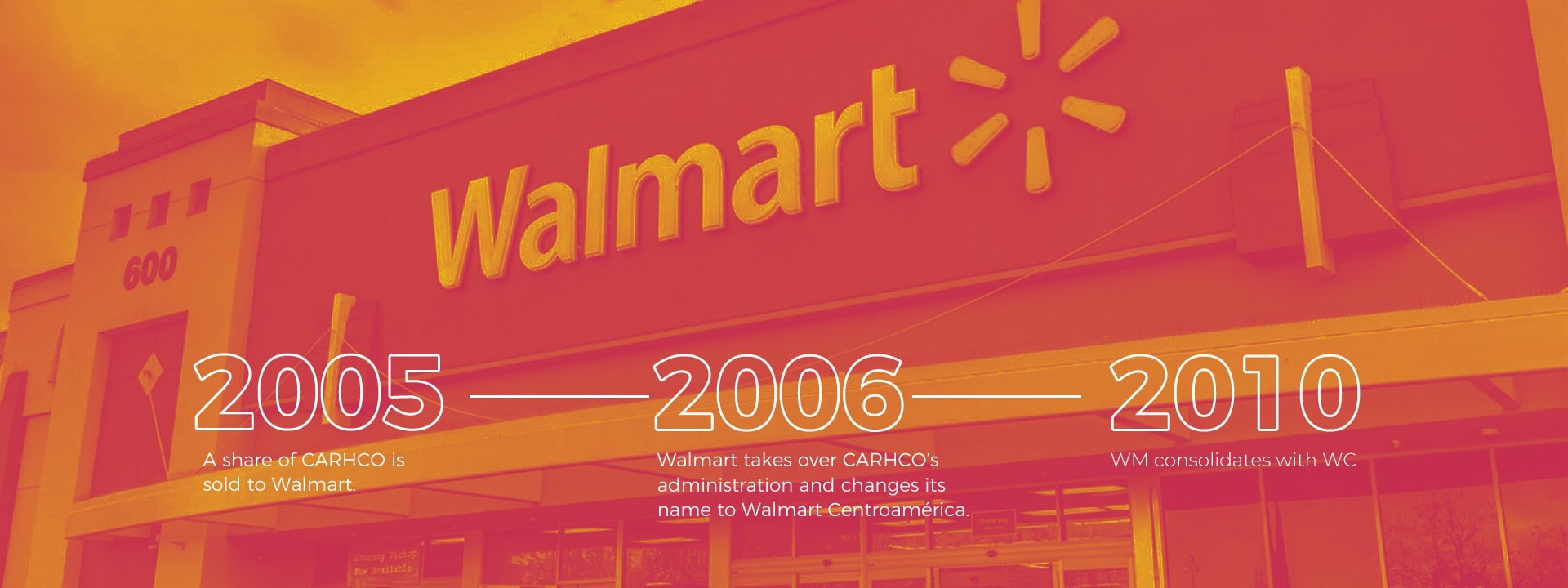
-
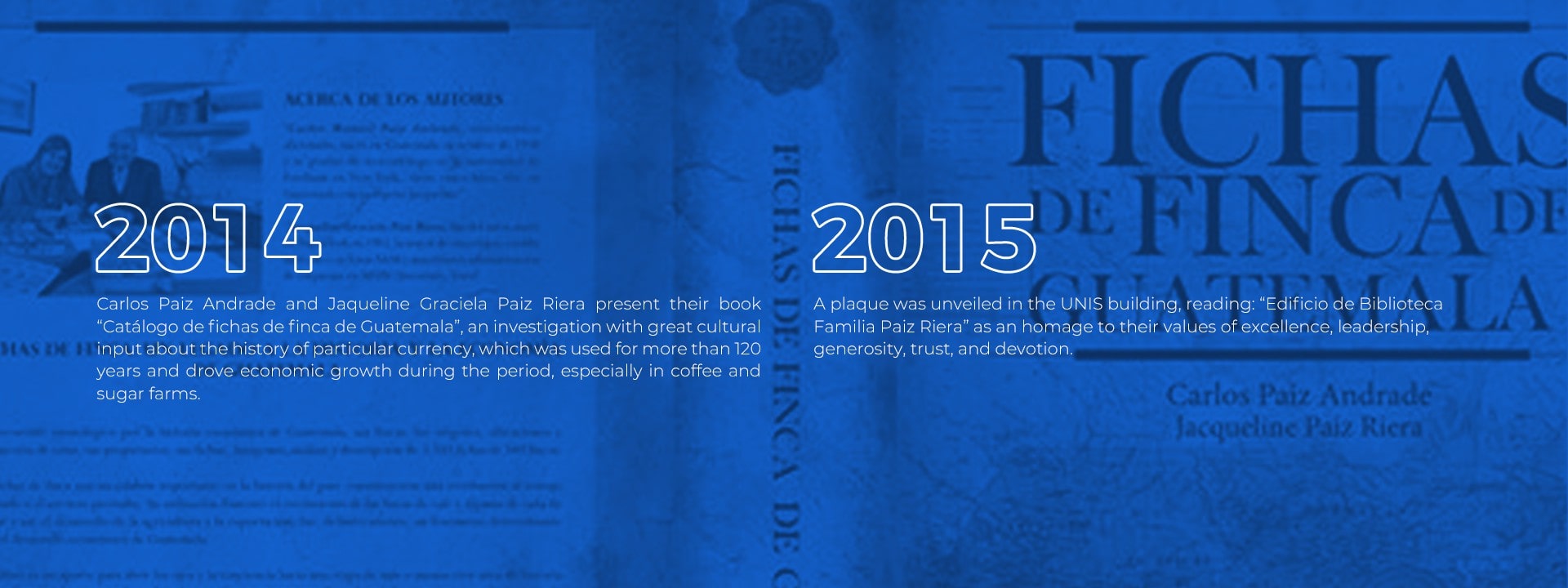
-
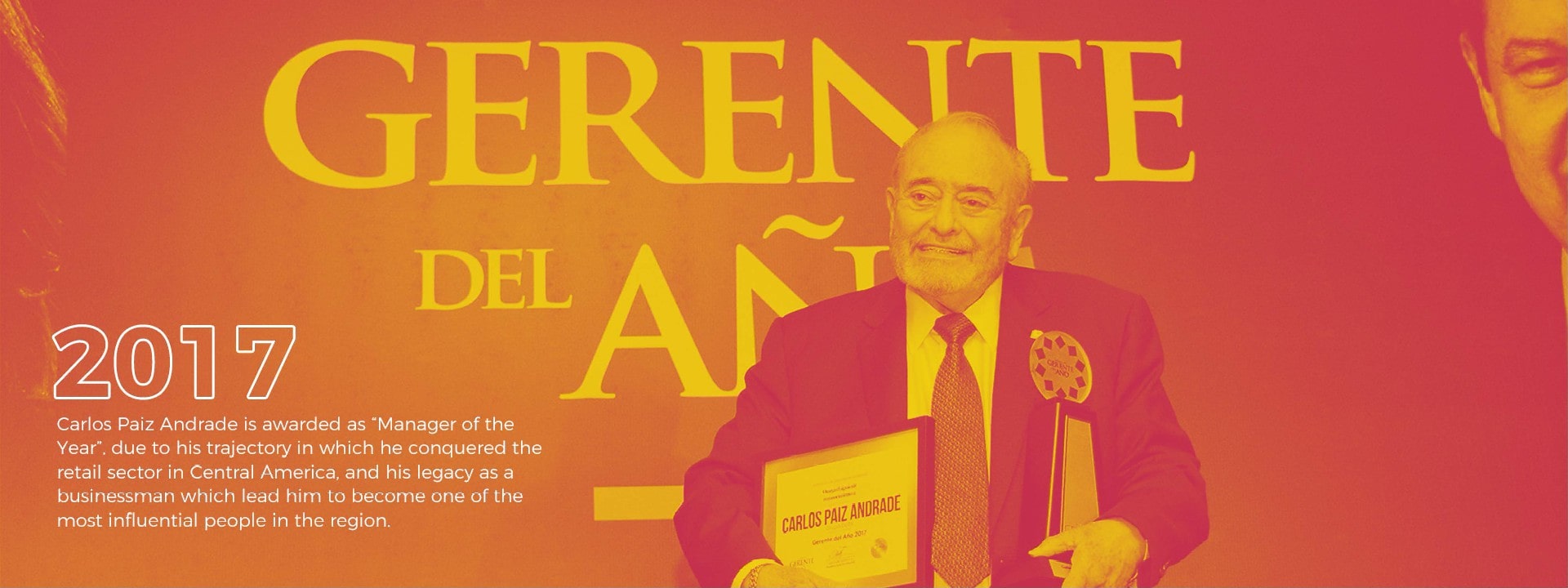
VALUES
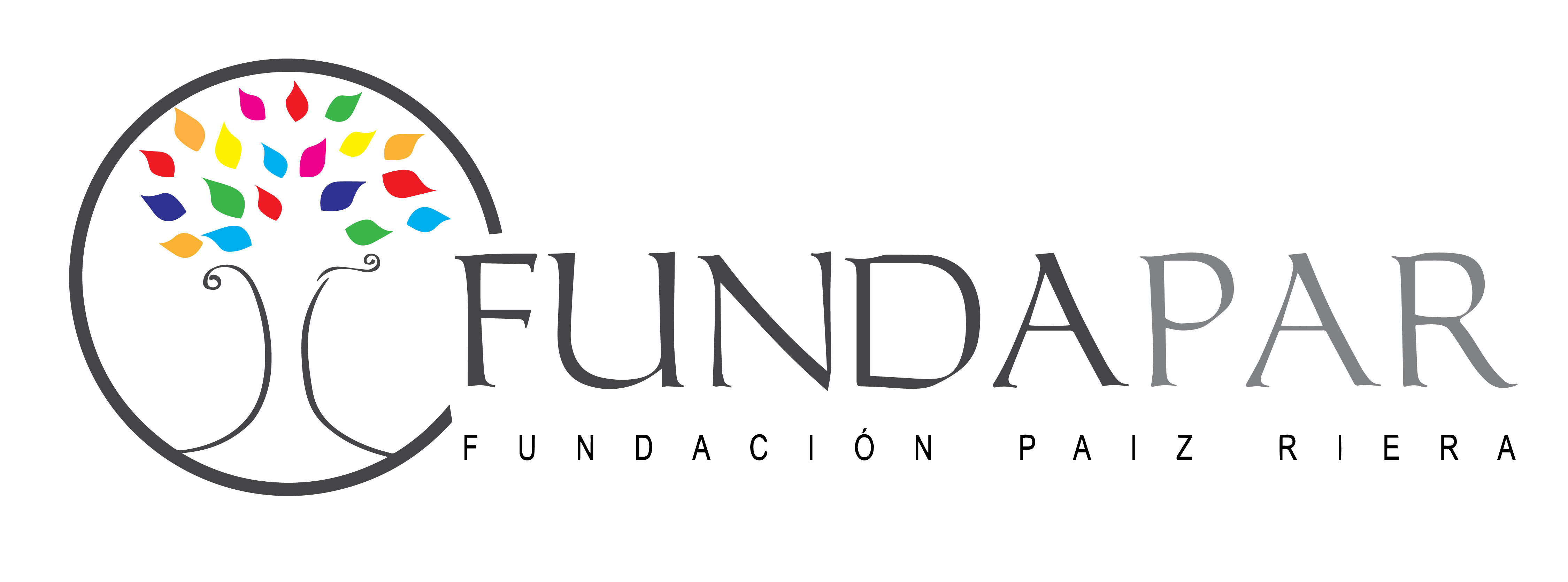
Paiz Riera Foundation
It is the Philanthropic wing of the office, founded in 2010. FUNDAPAR has the purpose of promoting education through economic cooperation.
It has several scholarship projects for university students and it actively participates in supporting higher education institutions in Guatemala.
For many years, it has participated actively promoting education and culture through different foundations.
The members of the Paiz Riera Family have distinguished themselves by their high vocation for humanitarian service, and have participated as founding members of the Asociación Amigos Pro Obras Sociales del Hermano Pedro (AAPOS). Founded in 2011, AAPOS is responsible for raising funds to guarantee the sustainability of Social Works and for the construction of the Virgen del Socorro Home in the Village of San Juan del Obispo in Sacatepéquez.
In recent years, as a product of Mr. Carlos Paiz's passion for numismatics, he has created important books that preserve the national heritage through research on the development of currency in Guatemala. With his first book "Fichas de Finca de Guatemala", he tells the story of the use of particular coins or tokens, which were used as a means of payment to workers mainly on coffee and sugar farms.
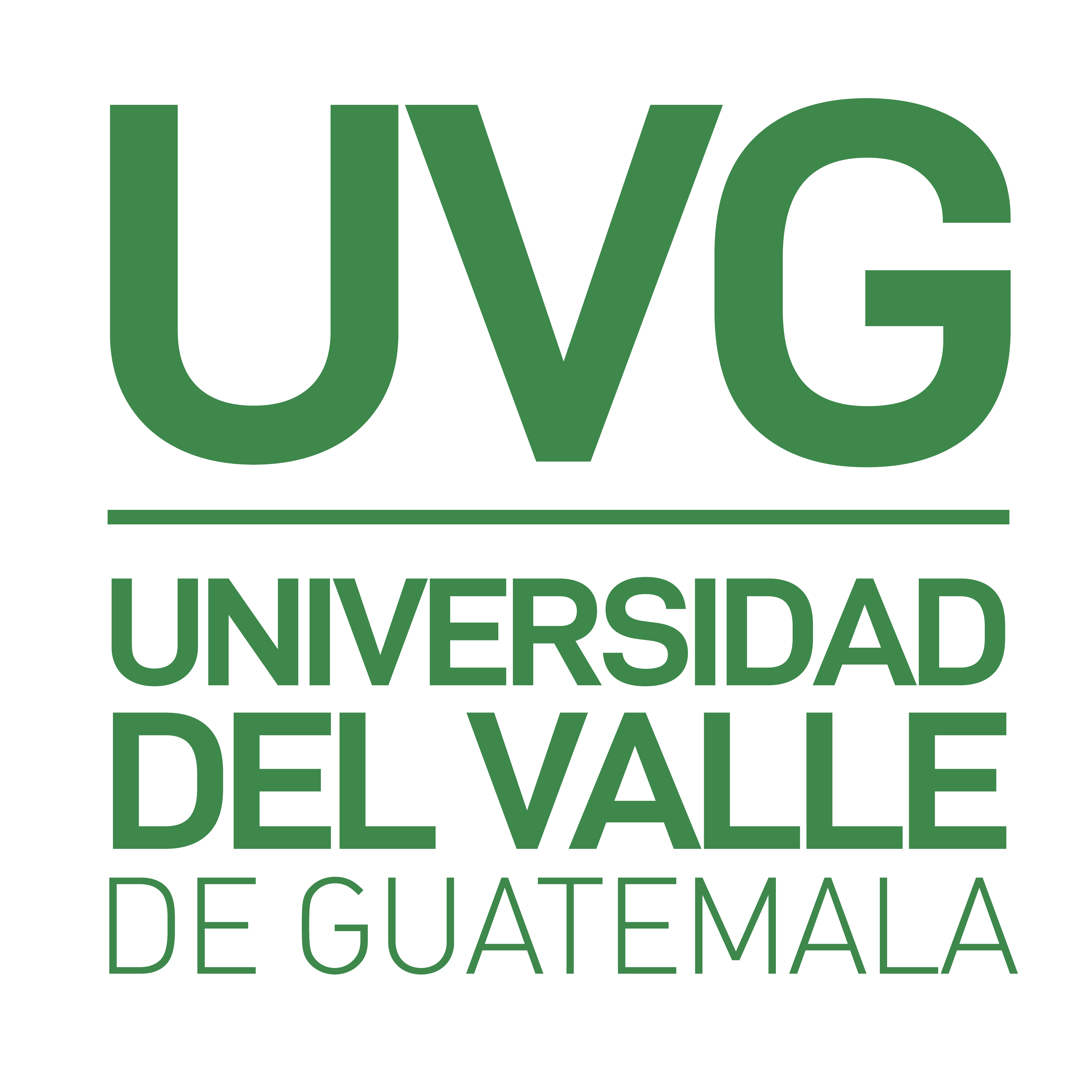
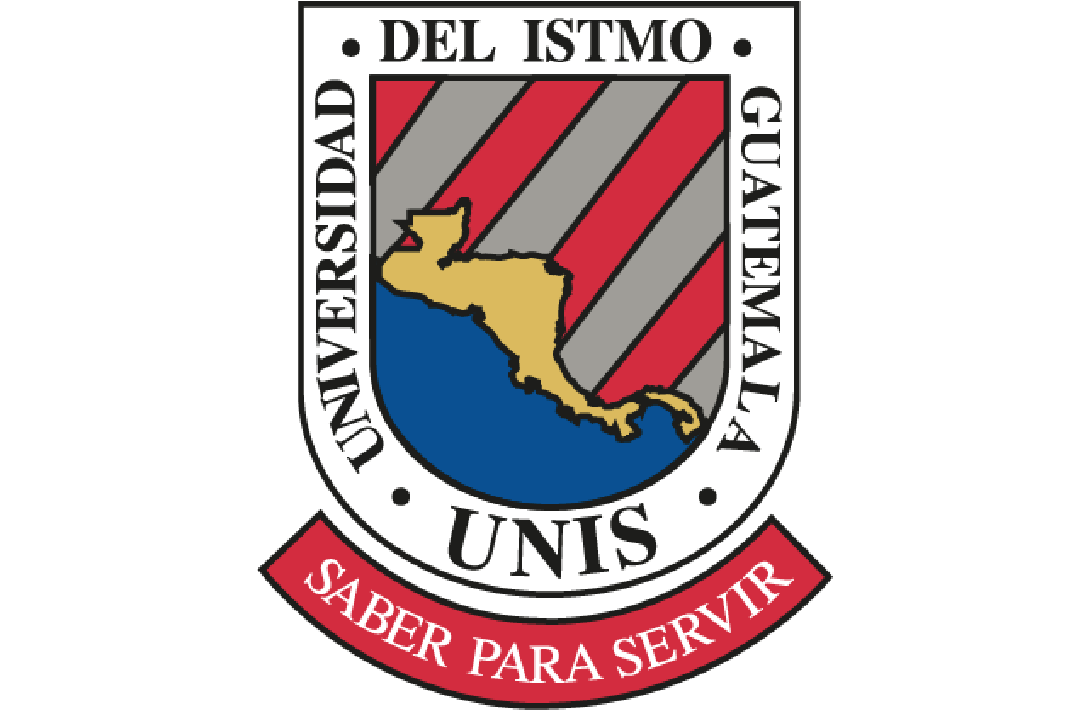
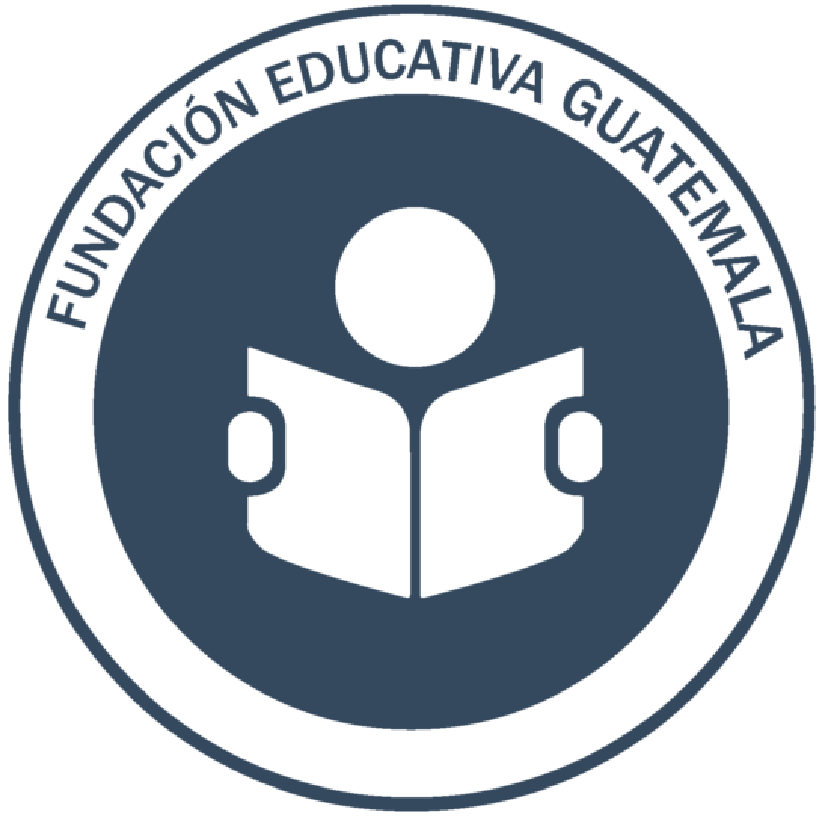
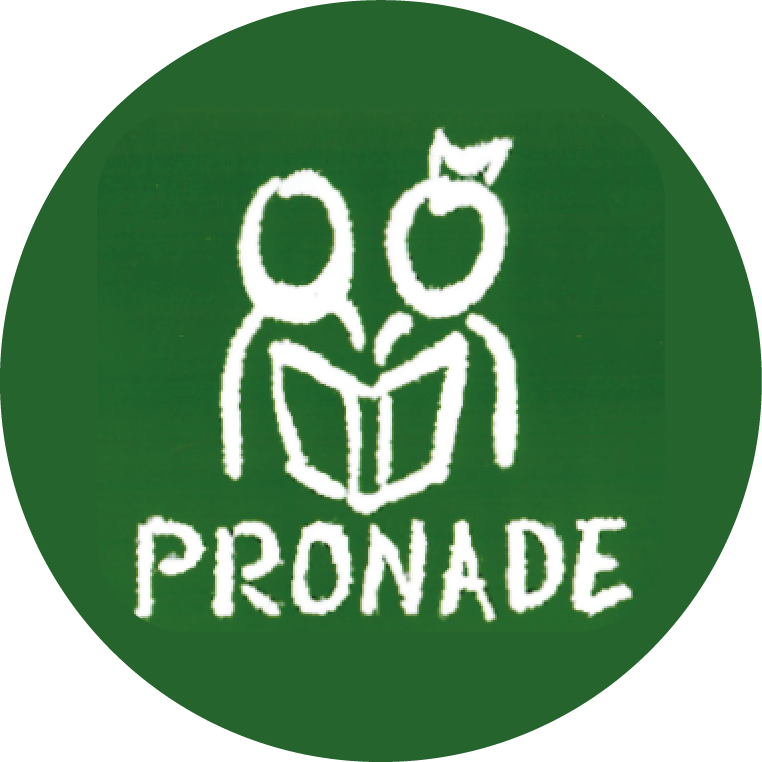
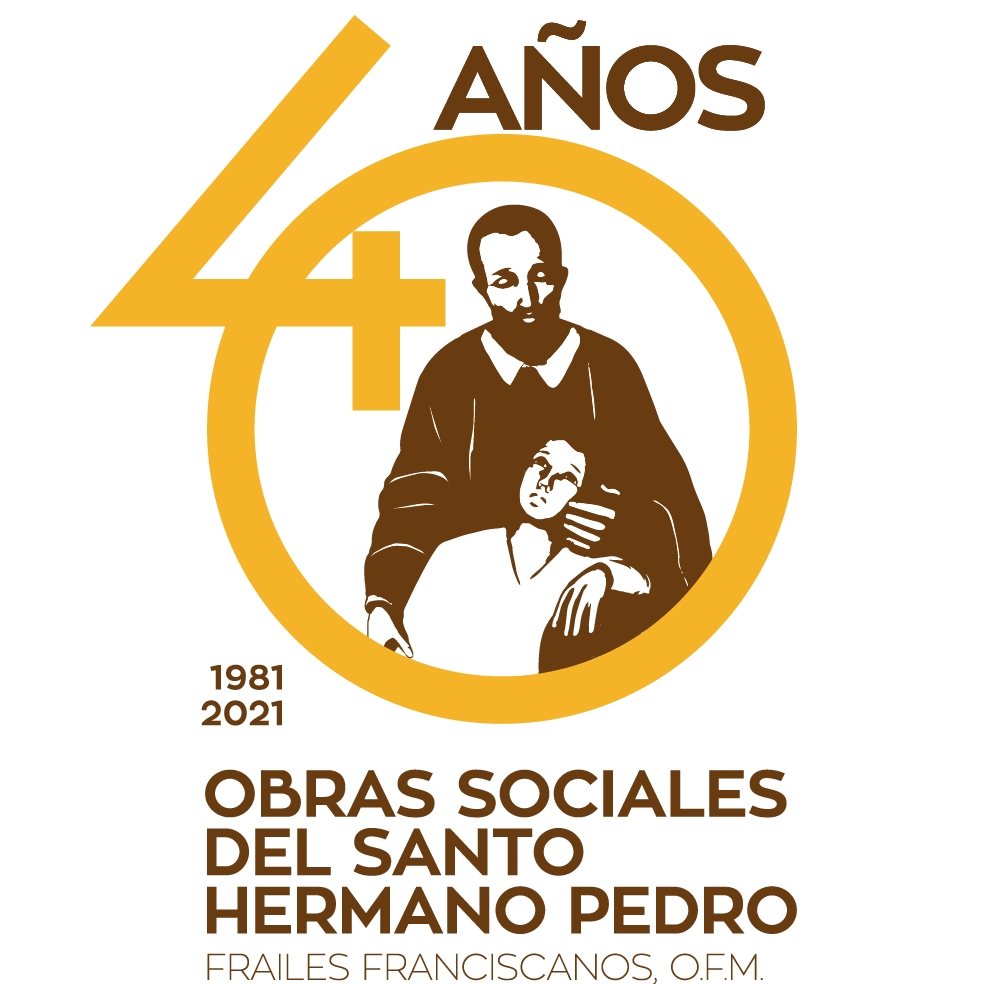

Since its beginnings, the Paiz Riera family has actively participated in the economic, social, and cultural development of Guatemala, through its companies, foundation, and in person. Convinced that human resources are the key to catapulting the country's development, Mr. Carlos M. Paiz and the Paiz Riera Foundation (FUNDAPAR) have made generous donations to the Universidad del Valle de Guatemala (UVG) and the Universidad del Istmo (UNIS). Mr. Carlos and his family are filled with enthusiasm and pride in helping these institutions stay at the forefront of technological advances and the educational needs of the new generations.
UVG
Mr. Carlos has collaborated with the foundation of the Universidad del Valle de Guatemala (FUVG) as a donor and trustee. He was president of the Board of Trustees from 2002 to 2004. Between 2000 and 2005, he made contributions for individual scholarships and in 2006 he contributed with the original capital for the Paiz Riera Financial Aid Fund, which works successfully to date.
Initially, the Fund provided scholarships and loans to Engineering and Education students from the central campus and, after a significant contribution from FUNDAPAR, it became a revolving fund for educational loans covering Engineering and Education students from the three UVG campuses: Central, South and Altiplano. Currently the fund only grants loans. The interests accrued had made an increase in the equity for loans possible, from around Q5,500,000 to more than Q21,000,000 in 2021, benefiting more than 1,900 students.
Initially, the Fund provided scholarships and loans to Engineering and Education students from the central campus and, after a significant contribution from FUNDAPAR, it became a revolving fund for educational loans covering Engineering and Education students from the three UVG campuses: Central, South and Altiplano. The current recovery on credits granted in previous years has allowed to increase the funds available for credits, from an initial amount of Q5,500,000 to a total of Q21,000,000 that by 2021 have helped more than 1,600 students.
In recognition of his support and commitment to the university, in 2005 the Board of Directors created the “Dr. Carlos Manuel Paiz Andrade Award for Excellence” scholarship, which is awarded annually to the most outstanding student in the last year of Food Science Engineering. Also, in 2006, the university awarded Mr. Carlos as an Honorary Doctorate in Education.
In 2012, FUNDAPAR provided funds for the construction of Plaza Paiz Riera, a meeting space for the student community on the central campus. And in 2020, Don Carlos signed an agreement in a personal capacity to sponsor the auditorium of the new UVG building, the CIT (Center for Innovation and Technology).
UNIS
Don Carlos and FUNDAPAR contributed the funds for the construction of the Paiz Riera Library on the new campus of the Universidad del Istmo, as well as for the mounting of a study room called a working point, in which authorized and reliable copies of part from the collection of old maps of Don Carlos are exhibited.
In addition, Mr. Carlos has personally been part of other successful educational initiatives to promote education in the country.
Colegio Interamericano / Fundación Educativa Guatemala (FEG)
In the 1970s, Mr. Carlos and other members of the Association of Alumni of the Colegio Americano de Guatemala (CAG) agreed to create a new school since, due to the exponential growth of enrollment in CAG, they no longer had a guaranteed space for their future children. The creation of the Inter-American School was agreed, with similar standards to those of the CAG in values and educational quality. Mr. Carlos was elected Treasurer of the Board of Directors of the school.
The school began with a loan of Q12,000, renting a house in Guatemala City’s Zona 4. It started with a kindergarten classroom, growing by adding one school year classroom per year. When it was decided to seek funds to build a new building, in his role as Treasurer, Mr. Carlos led an approach to ask parents for their support. He also encouraged the creation of payable bonds, redeemable in the future, for the enrollment of new students. Step by step, funds were raised for the new construction and more land was obtained with the Leal family.
With the efforts of Mr. Carlos, the generosity of other former students, and a long-term loan obtained from Banco de Occidente, the funds for the new facilities in Zona 16 were obtained, which helped for many years until the recent remodeling and expansion in 2020. Colegio Interamericano now has a first-class campus and is very successful academically.
In 1979, the Fundación Educativa Guatemala (FEG) was created and ownership of the school was transferred to it. Initially, it was made up of former students of the CAG and today it is made up of former students of the Colegio Interamericano. Mr. Carlos was part of the Board of Directors of the Colegio Interamericano for 7 years, from 1975 to 1981, being a trustee and founder member of the FEG from 1979 to date.
Programa Nacional de Autogestión para el Desarrollo Educativo (PRONADE)
In 1995 it was estimated that nearly 800,000 children and young people were not part of the educational system. In this context, PRONADE arises, as an effort by the Ministry of Education to improve the poor coverage and quality of pre-primary and primary education, with emphasis on rural areas, in the most remote corners of Guatemala, traditionally forgotten due to their difficult access.
PRONADE
It consisted of a system of schools managed by parents, with three actors: the parents' committees (Coeduca), which administered the school; the Institutions of Educational Services (ISE), contracted by the Ministry to provide technical assistance and training to the Coeduca in their organization and operation; and PRONADE as the executing unit that channeled public funds, controlled and monitored the work of the ISEs and the Coeducas. The program was successful thanks to the involvement of the parents, who, constituted in the Coeduca, administered the school since its opening, managing funds for the purchase of school supplies and payment of teachers, and being able to dismiss and hire people according to performance.
In 1997, Mr. Carlos M. Paiz joined the Board of Directors of PRONADE with the aim of contributing his valuable personal experience in educational initiatives and his outstanding business career. In this role, Mr. Carlos sponsored several helicopter trips to remote areas of the country, accompanying Roberto Moreno, Minister of Education, and Miriam Castañeda, Director of PRONADE, in the important and difficult task of supervising the program. Mr. Carlos separated from PRONADE in 2000, when the program had more than 100,000 students. Responding to a call from the Ministry of Education, in 2005 Mr. Carlos and his daughter Paulina supported PRONADE by designing a communication campaign aimed at the general population so that they knew what the program consisted of.
The system gave excellent results, achieving greater coverage and educational quality. It worked during three periods of government (Arzú, Portillo and Berger). PRONADE came to represent a fifth (20%) of enrollment in primary school.
Unfortunately, PRONADE had detractors, especially in the ranks of the teachers' union, who pressured then-candidate Álvaro Colom and negotiated with him during his electoral campaign. During his administration (2008-2012), Colom dissolved the program and incorporated the PRONADE schools into the national education system.
In recent years, there has been a dramatic drop in primary education coverage, which was practically universal at the beginning of the century. In 2019 it denoted a drop of around 20%, a notable coincidence with the coverage achieved by PRONADE.
A journey from a historical and exonumic perspective, of Guatemalan farm records from the mid-19th century to the mid-20th century: the farms, their locations and production, their owners, their records. Images, analysis and description of 3,503 records of 549 farms, shops and other establishments.
The farm tokens are an important link in the history of the country: they constituted a retribution for the work done or the service provided. Its use encouraged the growth of coffee farms and some sugar cane farms and thus, the development of agriculture and export. It was definitely a determining phenomenon for the economic development of Guatemala.
This book is a contribution that opened the eyes and the conscience of a system towards nearly one hundred years of unknown national history.
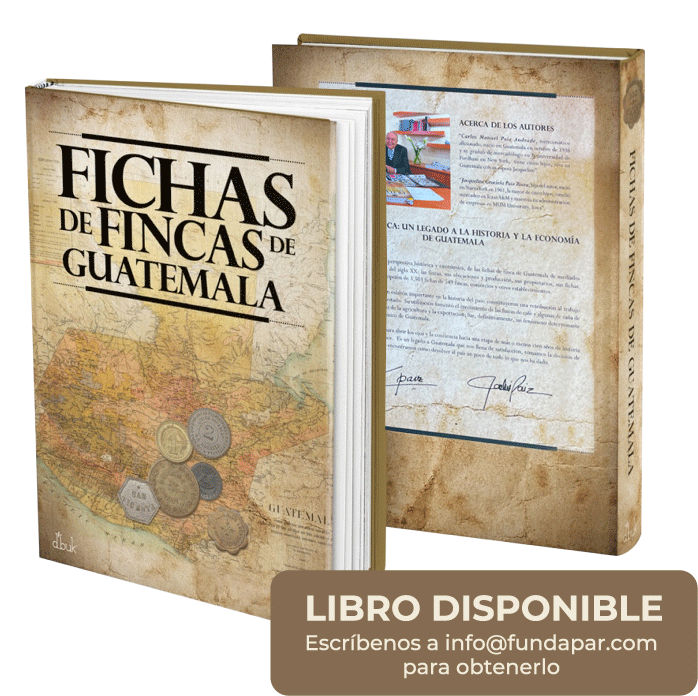
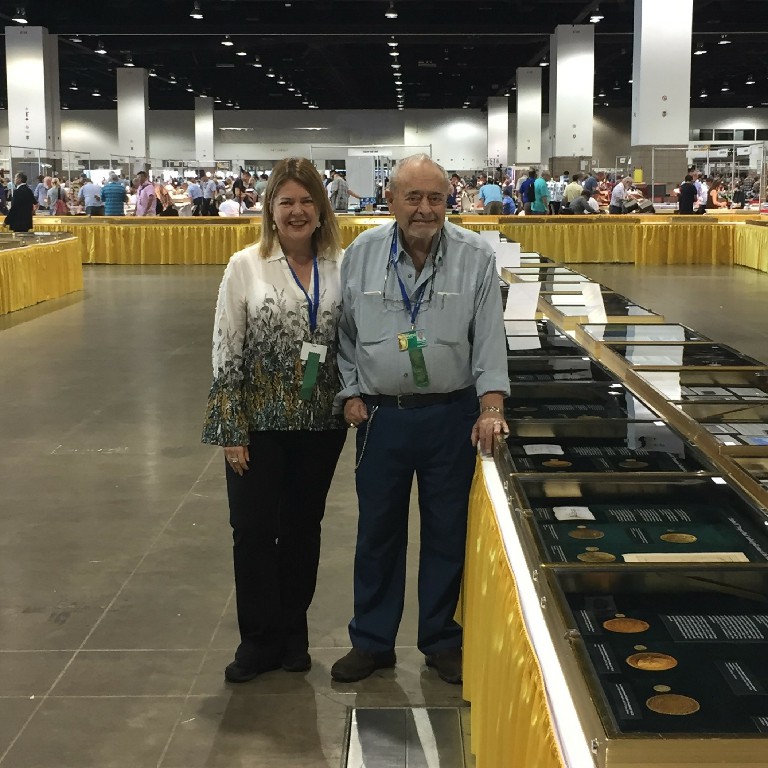
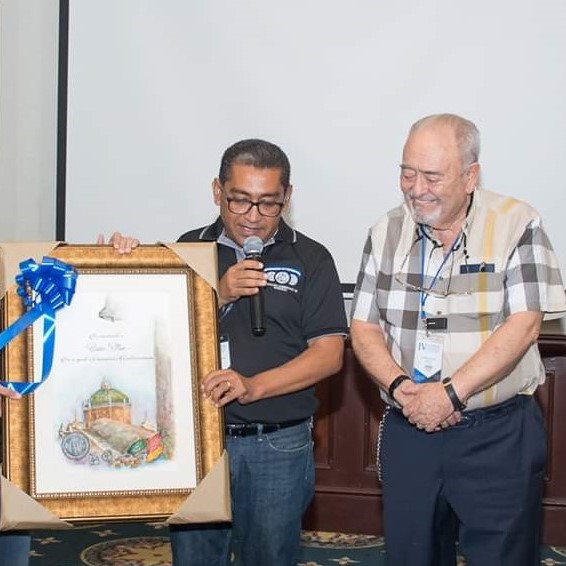
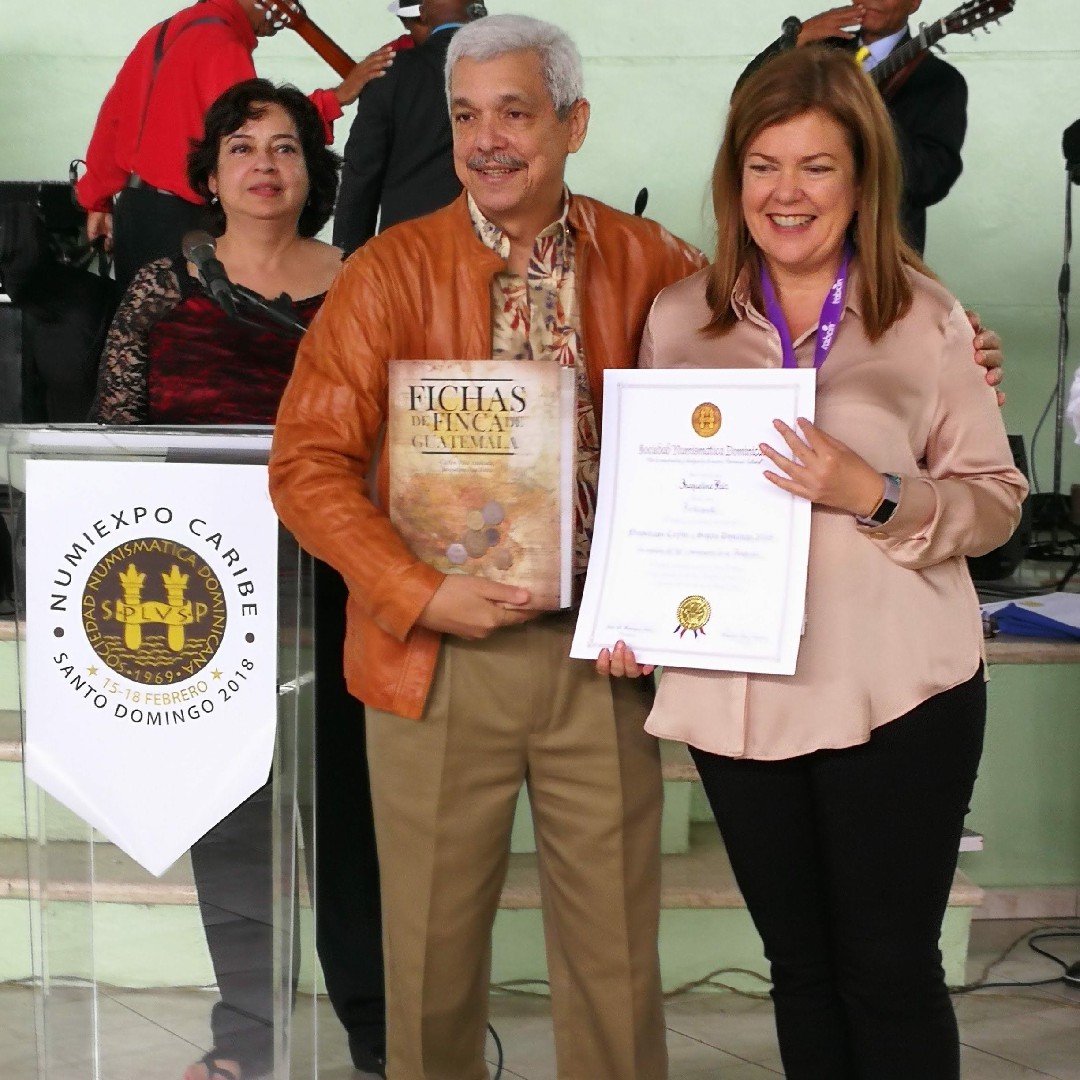
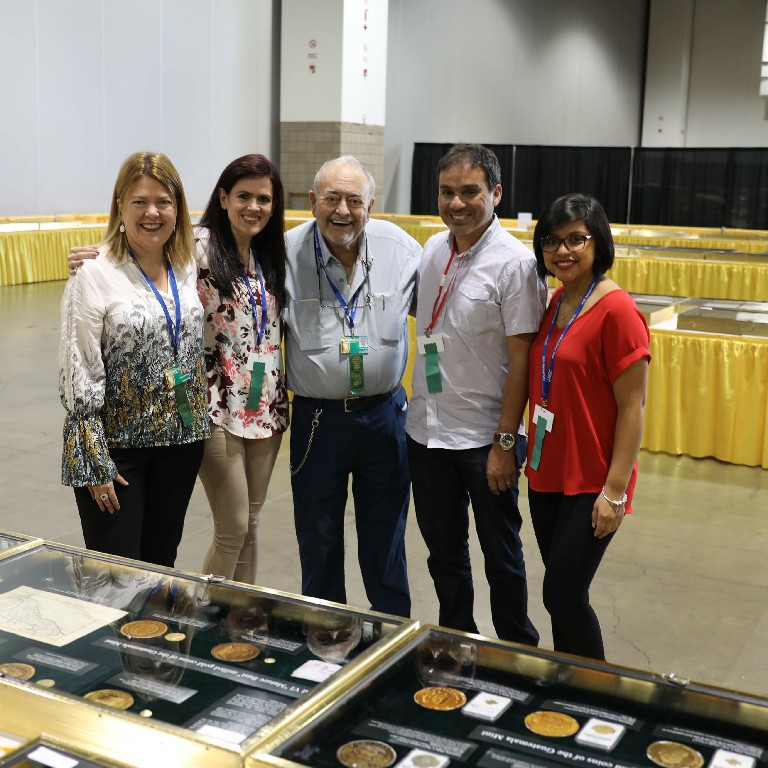
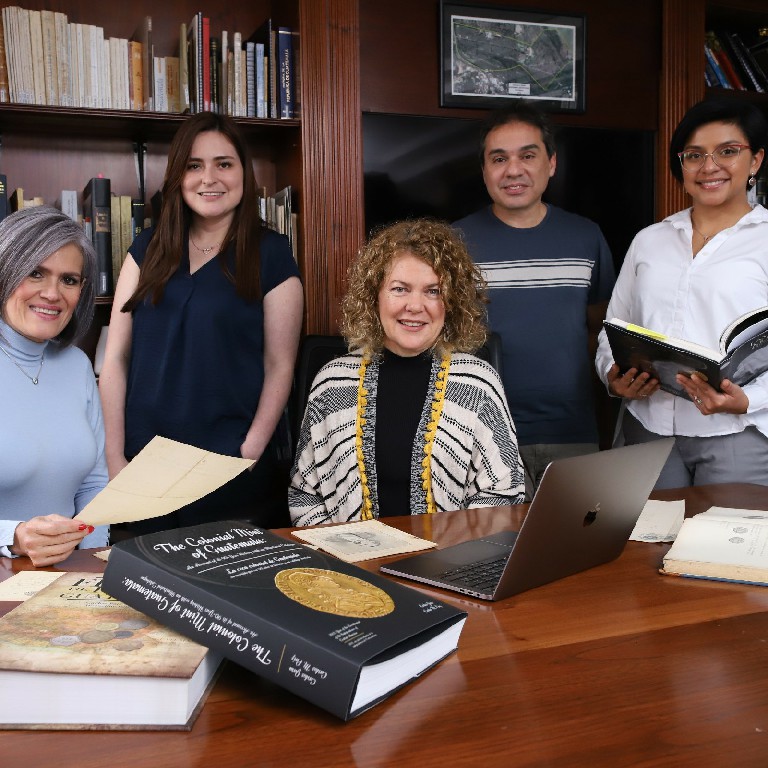
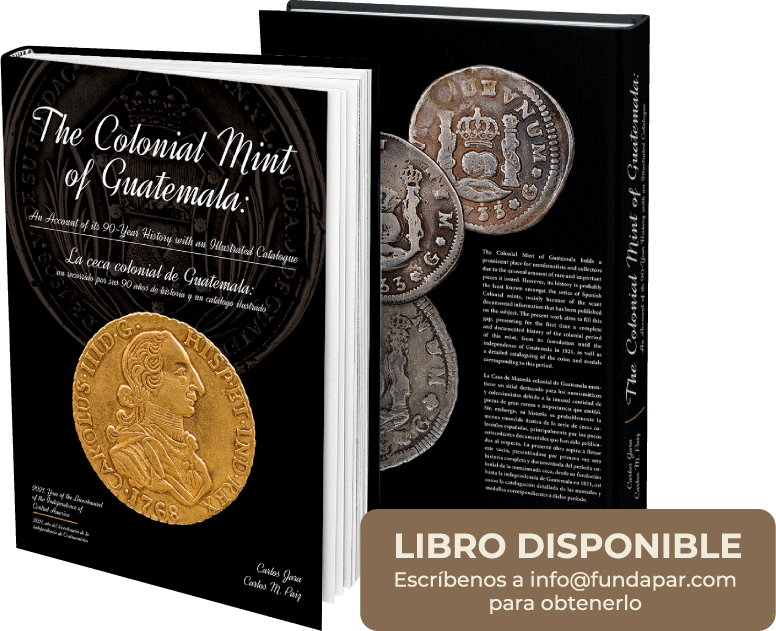
The Colonial Mint of Guatemala maintains a prominent place for numismatists and collectors due to the unusual number of pieces of great rarity and importance that it issued. However, its history is probably the least known within the series of Spanish colonial mints, mainly due to the few documentary records that have been published in this regard. The present work aspires to fill this gap, presenting for the first time a complete and documented history of the colonial period of the mentioned mint, from its foundation until the independence of Guatemala in 1821, as well as the detailed cataloging of the coins and medals corresponding to said period.
The Colonial Mint of Guatemala holds a prominent place for numismatists and collectors due to the unusual amount of rare and important pieces it issued. However, its history is probably the least known amongst the series of Spanish Colonial mints, mainly because of the scant documented information that has been published on the subject. The present work aims to fill this gap, presenting for the first time a complete and documented history of the colonial period of this mint, from its foundation until the independence of Guatemala in 1821, as well as a detailed cataloguing of the coins and medals corresponding to said period.
La Asociación Amigos Pro Obras Sociales (AAPOS)
It was founded in November 2011. It is a private, non-profit, non-religious, non-political, social, cultural, educational, humanitarian and social assistance organization.
It consisted of a network of men and women who are distinguished by their high vocation for humanitarian service and who voluntarily join, manage and contribute with their own capacities and possibilities, resources of all kinds and time to spread and strengthen the Asociación Obras Sociales del Santo Hermano Pedro, which works under the direction and care of the Franciscan Friars OFM, in La Antigua Guatemala.
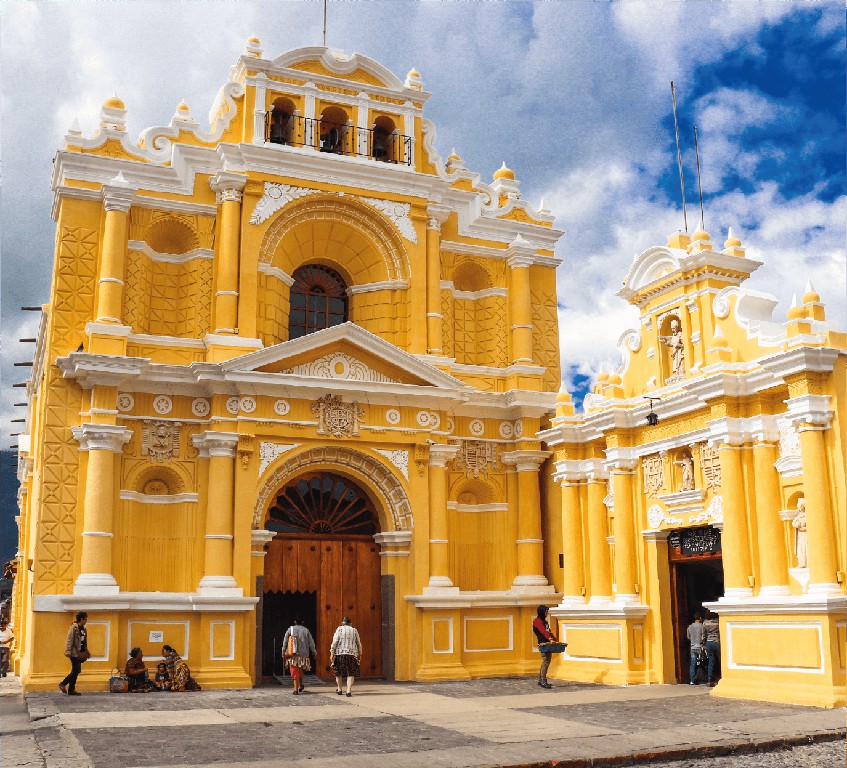
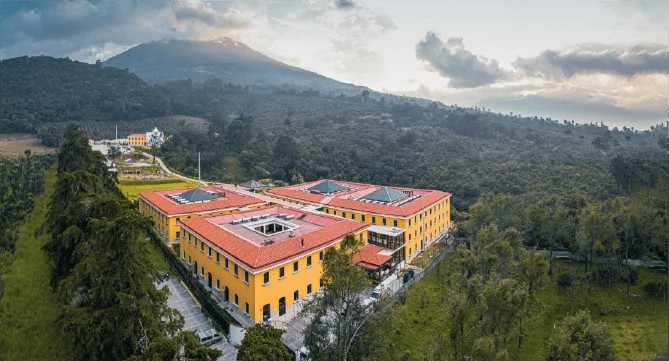
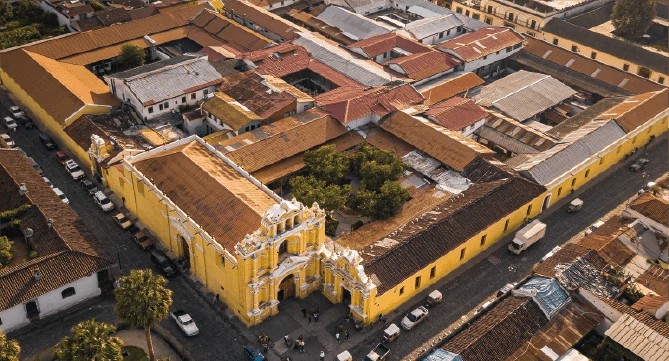
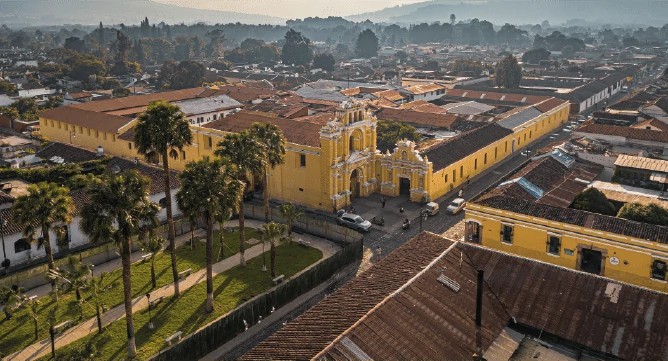
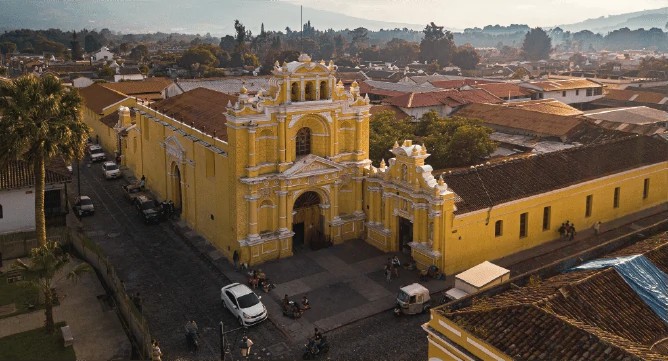
Obras Sociales del Santo Hermano Pedro
Founded in 1981 by the Franciscan Order of Minor Friars. It is an association, non-political, non-governmental or non-profit, with legal status, registered in the State taxation system and with operating licenses in health and education. Its objective is to provide medical, educational, spiritual, moral and social assistance to all poor, orphaned or abandoned people. It is recognized for the quality of its services and its reputation as a transparent and trustworthy charity.
The members of the Paiz Riera Family are founding members of AAPOS, which was born with the intention of disseminating the work that the Social Works of Santo Hermano Pedro carry out in favor of the health and care of the poor, sick and abandoned people of Guatemala, as well as supporting the sustainability of the institution in order to grow and develop.
In these two purposes, the Paiz Riera Family has been an important and active bastion.
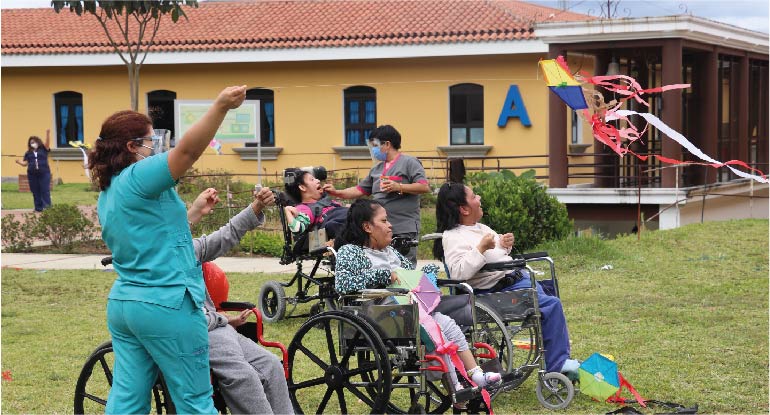
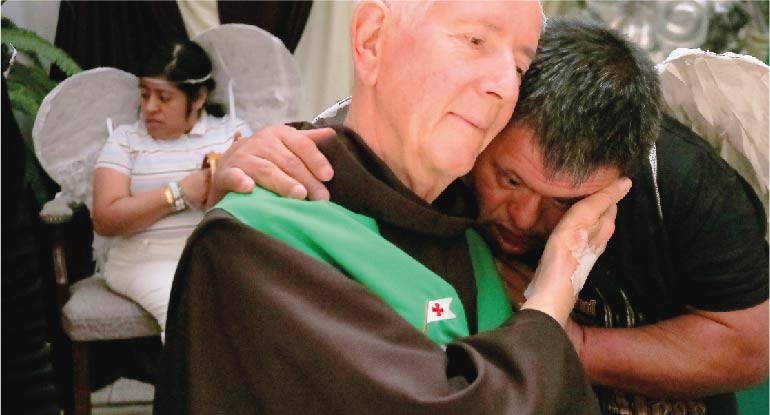
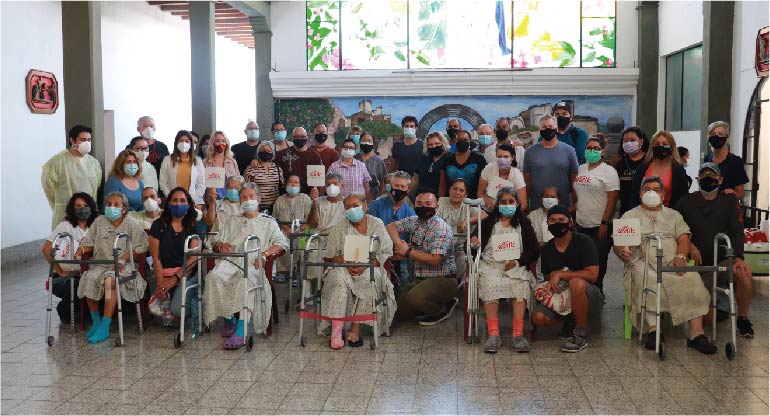
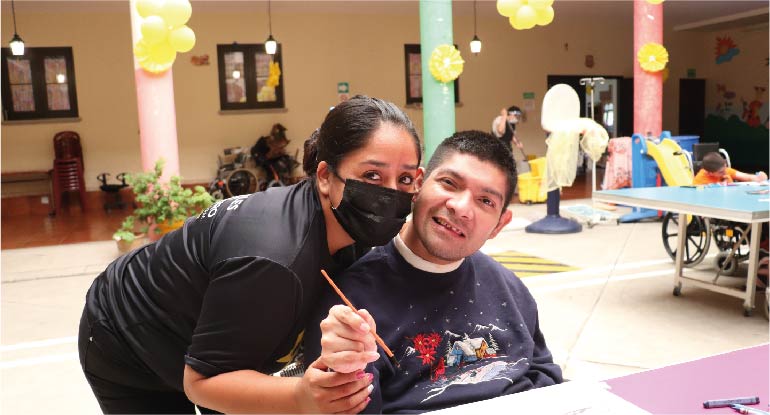
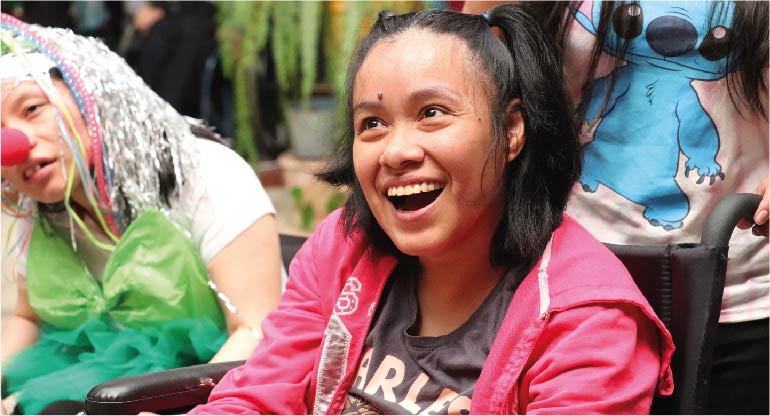
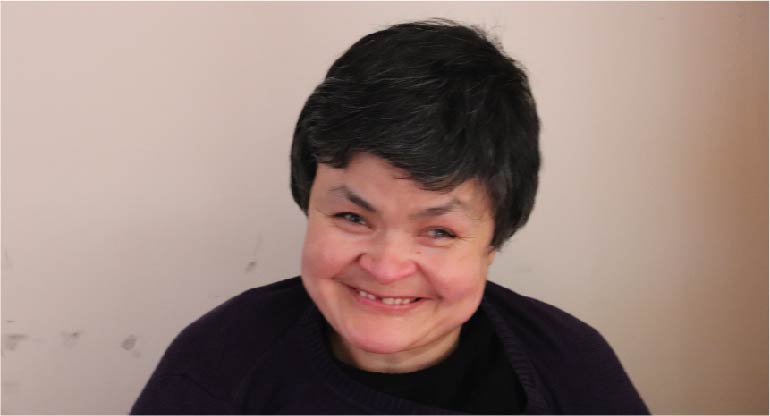
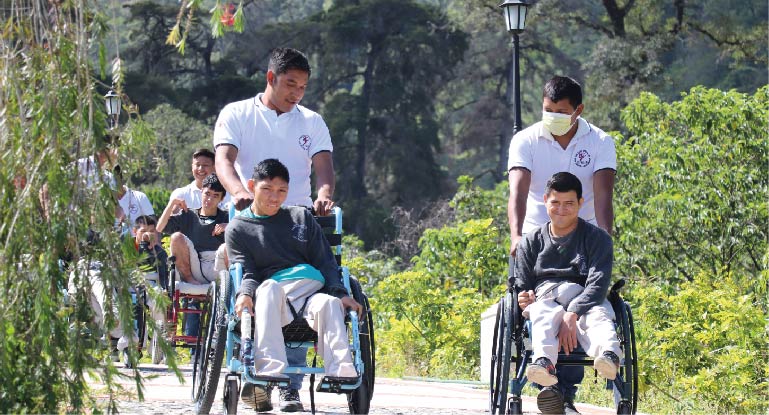
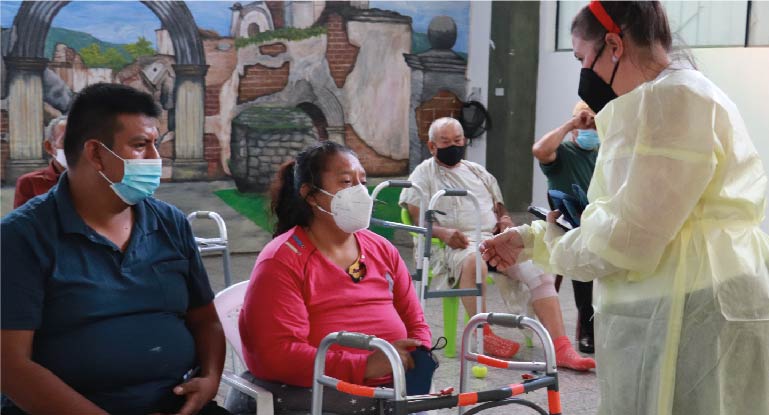
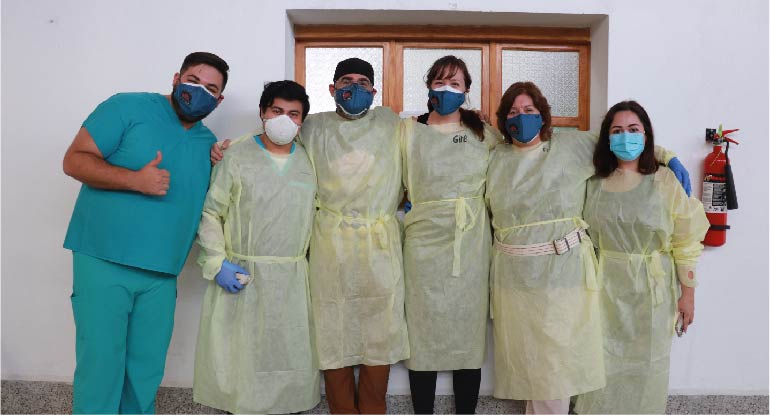
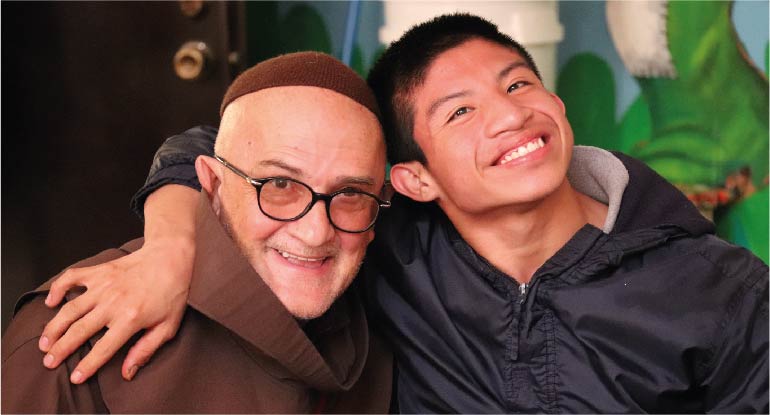

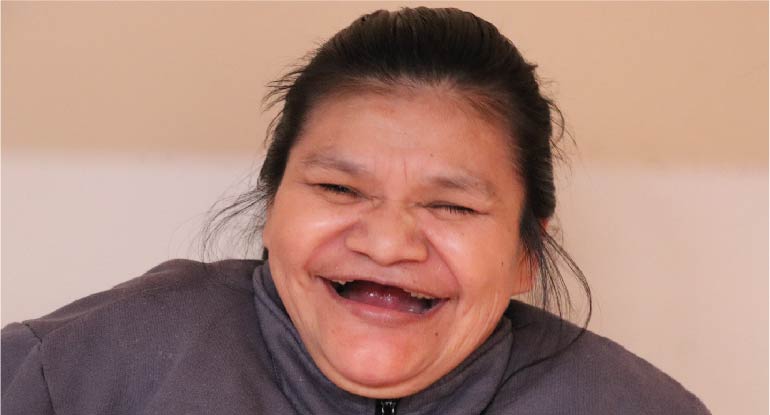
Through their support, multiple events were held to collect funds for the construction of the Home for the Virgen del Socorro in the Aldea San Juan del Obispo in Antigua Guatemala. The home, which has a total area of 15,250 m^2 of construction, was inaugurated in December 2016.
Currently, they support fundraising for the expansion of the area operating theaters of the Santo Hermano Pedro Social Works Hospital, which includes the construction of three new operation rooms, with which it will be possible to give more than 10,000 surgeries annually and be able to receive volunteer groups of surgeons from countries like United States, Canada and Europe.
Obras Sociales del Santo Hermano Pedro was founded more than 40 years ago and since 1997, it has served more than four million patients, providing more than fifteen million attentions.
The support of AAPOS has been vital for sustaining the important contribution that we provide to the most needy Guatemalans.

